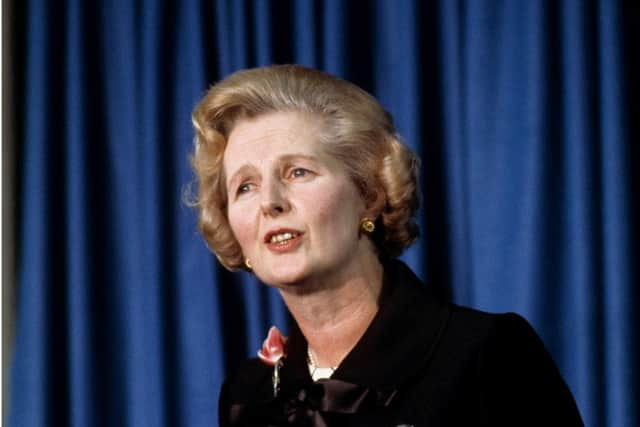Henry McDonald: Unionists should tread very carefully over trust in Liz Truss
and live on Freeview channel 276
Never mind the ‘Protocol’ or ‘Northern Ireland’, Ms Truss didn’t even reference the unity of the UK in the face of Scottish separatism or ongoing demands by Irish nationalists for a border poll in her opening address as PM-in-waiting.
It might be a bit premature for unionists to read too much into this omission however.
Advertisement
Hide AdAdvertisement
Hide AdShe appeared after all to be speaking primarily to the Conservative Party base which had just elected her their leader.


Given that the margin between Ms Truss and her rival Rishi Sunak was tighter than expected — 57% to 43% — perhaps her earliest priority was to balm the wounds within the party caused by such a prolonged, bruising 12-round bout over the summer.
Her wider message to the entire nation will inevitably take place after she flies down from Scotland later today after meeting the Queen on her Balmoral estate.
Outside the door of 10 Downing Street Liz Truss will set out her stall for the next few crucial months of her premiership when the whole of the UK stares into a winter of chilling energy price hikes, rampant inflation and general economic uncertainty.
Advertisement
Hide AdAdvertisement
Hide AdThe new prime minister’s response specifically to the cost-of-living/energy crisis will make or break her.
It is no secret that Liz Truss was the DUP’s preferred candidate. As foreign secretary in the last cabinet she argued for Article 16 to be triggered and the workings of the Northern Ireland Protocol suspended (albeit temporarily) in the face of Brussels refusing to renegotiate the post-Brexit agreement.
Rishi Sunak on the other hand argued successfully against deploying Article 16, pointing out that such a move would provoke a trade war with the EU.
By contrast, Ms Truss piloted the legislation enabling her government to overturn the protocol through its early stages in the House of Commons.
Advertisement
Hide AdAdvertisement
Hide AdShe also enjoyed the backing of the anti-EU European Research Group, some of whose members have privately warned her against bending to Brussels in any new round talks or diluting the NI Protocol Bill, which will undoubtedly get a rough ride in the House of Lords.
Before unionists rejoice at the Truss triumph they should remember the warnings from history. Much has been made of Ms Truss being the third female prime minister, all of them Tories.
During the leadership battle she emphasised her admiration for the first woman premier, Margaret Thatcher.
The Iron Lady entered office in 1979 with a reputation for being an instinctive, robust unionist once asserting that Northern Ireland was as British as her Finchley constituency.
Advertisement
Hide AdAdvertisement
Hide AdIn 1983 Mrs Thatcher caused consternation in Dublin by dismissing with an “Out, Out, Out” the recommendations for constitutional change on the island contained in Taoiseach Garret Ftizgerald’s ‘New Ireland Forum.’
Just two years later she and Dr Fitzgerald signed the Anglo-Irish Agreement granting Dublin an overseeing role in the running of Northern Ireland.
Owen Polley September 5: New PM needs to ignore latest EU threats over NI
Advertisement
Hide AdAdvertisement
Hide AdBen Habib Sep 5: Protocol is not just a threat to NI, but to the whole of the UK
Ben Lowry Sep 3: London will never treat SF as harshly as it will unionists
Ruth Dudley Edwards: Truth is the weapon to use against the lies of the IRA